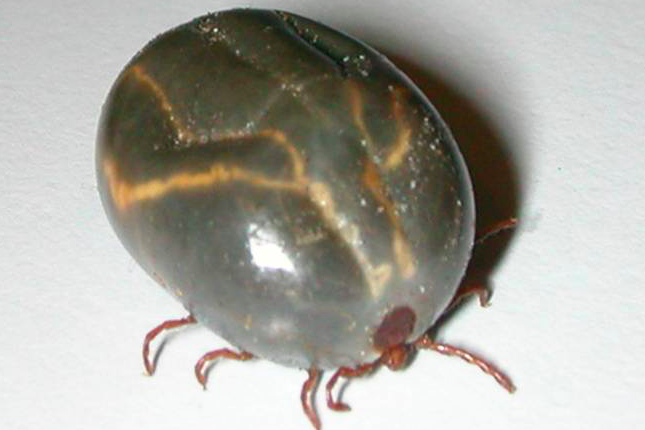
July 31, 2018
 Source/Creative Commons
Source/Creative Commons
Longhorned ticks are generally found in China, Korea and Japan. They first appeared in New Jersey in 2013, according to researchers at Rutgers University, and have been spotted in at least four other states.
The spread of an invasive tick species has made its way to Pennsylvania, state officials revealed on Tuesday.
Tests conducted by the National Veterinary Services Laboratory in Iowa have confirmed that specimens collected in Pennsylvania are longhorned ticks, an Asian species that typically infects hogs and cattle.
The confirmation comes not long after officials in New Jersey confirmed the first human interaction with the longhorned tick. A 12-year-old girl was found with a unusual tick on her stomach, though state officials said she was not bitten.
Longhorned ticks, sometimes known as cattle ticks or bush ticks, are difficult to distinguish from other tick species.
“Even experts have difficulty distinguishing among tick species, so it is important to take precautions to protect pets, livestock and family members from becoming a host for ticks of any kind,” State Veterinarian Dr. David Wolfgang urged.
“Scientists don’t yet know how this species will adapt to the North American climate and animal hosts, but we know it survived New Jersey’s winter and has infested sheep and cattle in this region.”
To date, specimens found in the United States have not tested positive for any infectious pathogens. In Asian populations, longhorned ticks have been known to spread diseases including the SFTS virus and Japanese spotted fever.
The appearance of the tick in several states suggests the species will likely multiply. Females reproduce asexually and can lay as many as 2,000 eggs after feeding on a host.
Ticks can be found in your own backyard, so it is essential to wear long sleeves and pants..."
“The discovery of the longhorn[ed] tick is another reminder of the importance of tick prevention for Pennsylvanians,” Secretary of Health Dr. Rachel Levine said.
“Ticks can be found in your own backyard, so it is essential to wear long sleeves and pants, use insect repellant containing DEET to help keep you safe from ticks and the diseases they carry. It is also important to check yourself and your pets for ticks, as pets can bring ticks indoors.”
Longhorned ticks were first identified in the U.S. last year in Mercer County, N.J., where a larger number of sheep were found carrying the species. They have since been found in Arkansas, New York, West Virginia, Virginia and Pennsylvania.
Follow Michael & PhillyVoice on Twitter @mtanen88 | @thePhillyVoice
Like us on Facebook: PhillyVoice
Add Michael's RSS feed to your feed reader
Have a news tip? Let us know.